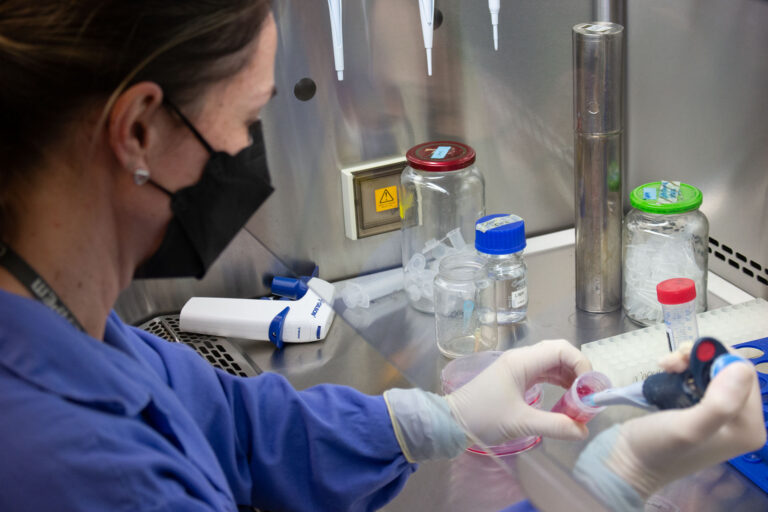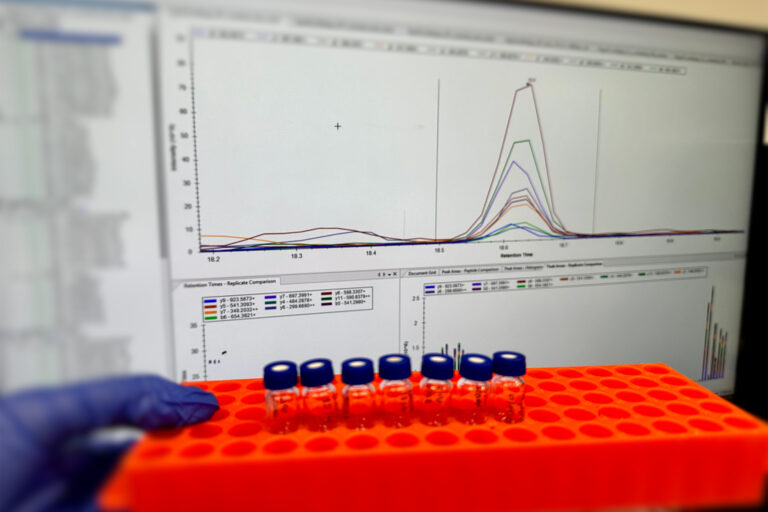- Home
- /
- Scientific divisions
- /
- Advanced health technologies
- /
- Proteomics
The robust nature of proteomic analysis, from a single cell to tissue, lies in its capacity to reveal potential markers and therapeutic targets with the potential to impact the diagnosis, prognosis, and treatment of various cancers, including those that affect the head and neck. Head and neck cancer is the seventh most frequent type of cancer worldwide and the fifth in Brazil. Despite efforts to improve diagnostics, prognostics, and therapeutic modalities, late diagnosis, metastasis to the lymph nodes, local recurrences, low response to treatment, and subsequent low survival rates still represent clinical challenges related to this disease.
In response, this group works to develop proteomic methods using mass spectrometry with various acquisition methods (DDA, DIA, PRM, SRM) to explore different disease microenvironments from single cells to tissue. This knowledge permits the discovery, verification, and validation of markers and therapeutic targets during the initial stages, progression, and treatment of head and neck cancer.
To translate knowledge into clinical practice, various strategies to identify and quantify proteins have been developed using mass spectrometry and biosensors, offering new prospects for diagnostics and prognostics in one of the diseases that most strongly impacts the global population.







